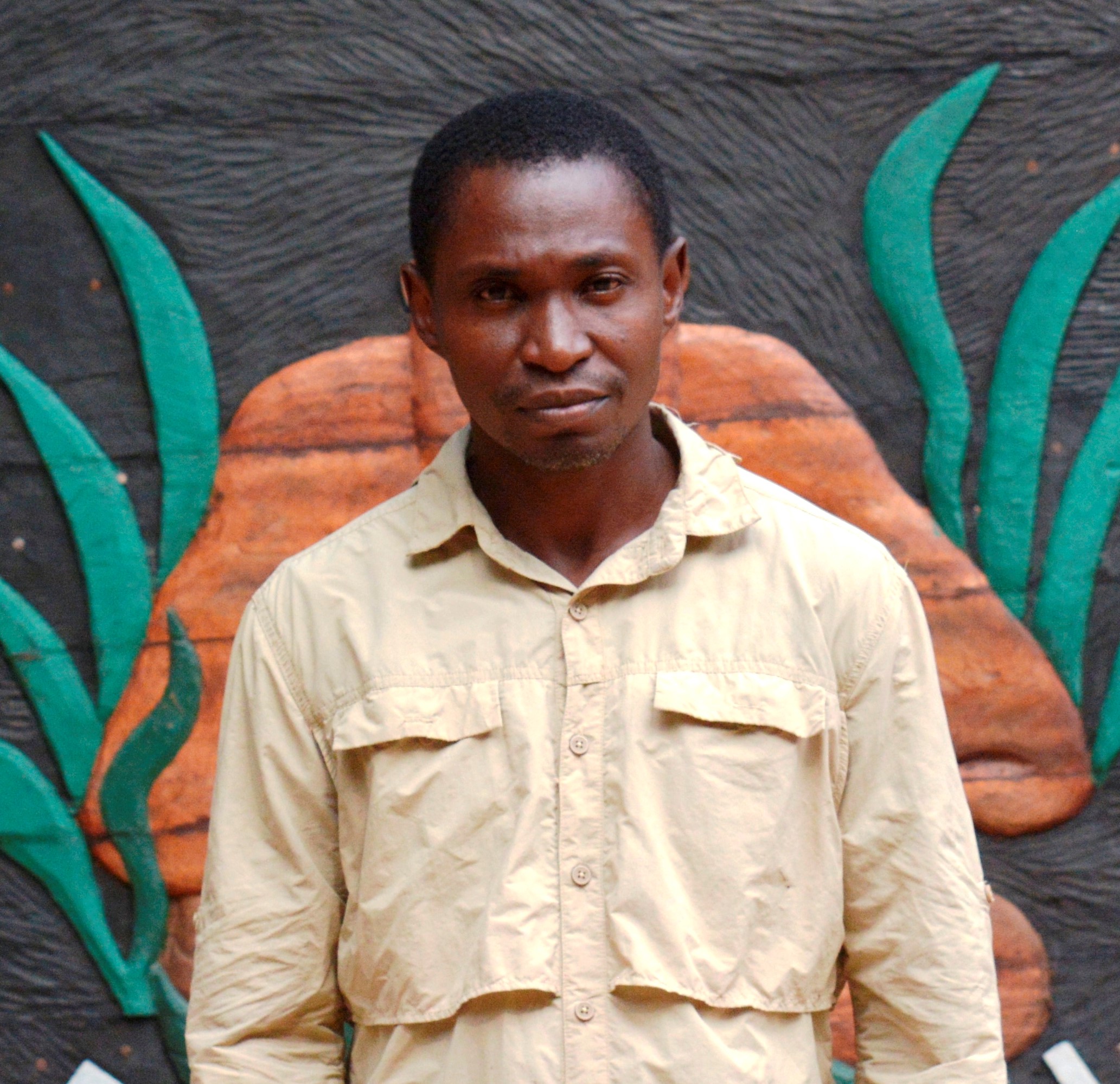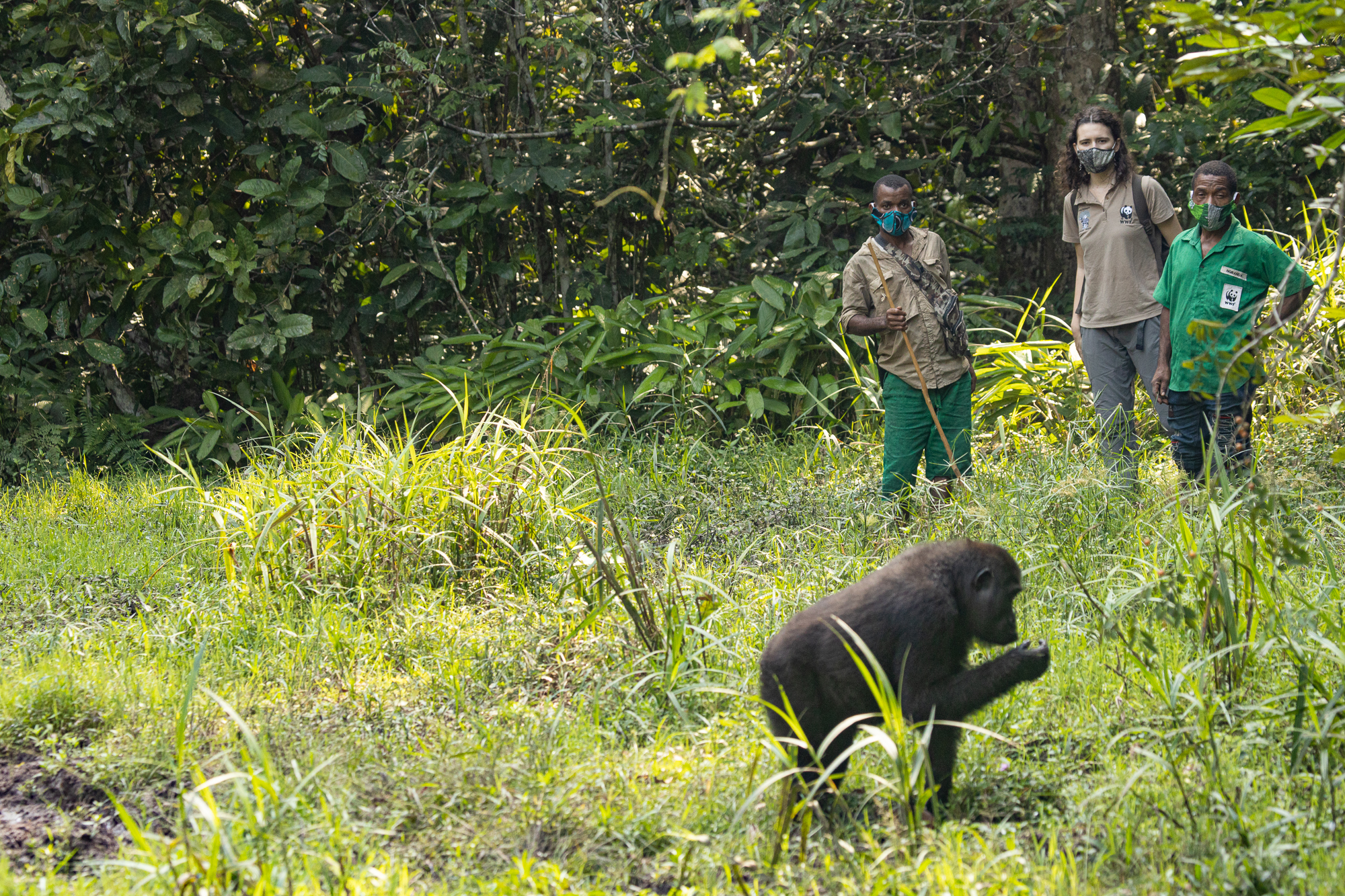
What are your tasks in the project, Emmanuel?
Firstly, I go into the forest myself with our trackers to observe the gorillas and document information on their behaviour and health. I also daily update our database , where the observations are stored, and correct recording errors. Finally, I take care of the training of the tracking teams as well as the supervision of the tourists and make sure that everyone follows the guidelines and rules of conduct.
What fascinates you most about your job?
Where do you see the biggest challenges in your work?
Currently we are trying to find a fourth gorilla group for habituation in addition to the Makumba, Mayele and Mata groups. This is not easy, but it is important so that the project can continue even if one of the previous groups should dissolve. This could happen very quickly if one of the silverbacks that lead the group dies. It is also a constant challenge for us to equip all tracking teams with sufficient work clothes, shoes and backpacks, because the demand is high and everything wears out so incredibly quickly in the rainforest. And I can assure you: If you are properly equipped, you are three times more motivated!
What are your personal goals, what would you like to achieve?
My dream of working with apes has already come true. Now I want to expand my knowledge and experience to become one of the primate experts in my country.
Why should someone support your project?
The ultimate goal in everything we do is to save the gorillas from extinction. We directly protect the habituated groups that we visit every day. From their observation, however, we also gain valuable insights that benefit the protection of the species as a whole. The numerous local and indigenous staff we employ carry the idea of conservation further into their families and communities – one of the reasons why no gorilla has been poached here for a long time. Finally, gorilla tourism also improves the living conditions in the community, because part of the income flows into their coffers. For all these reasons, I sincerely ask the sponsors in the world to continue to support us generously.
